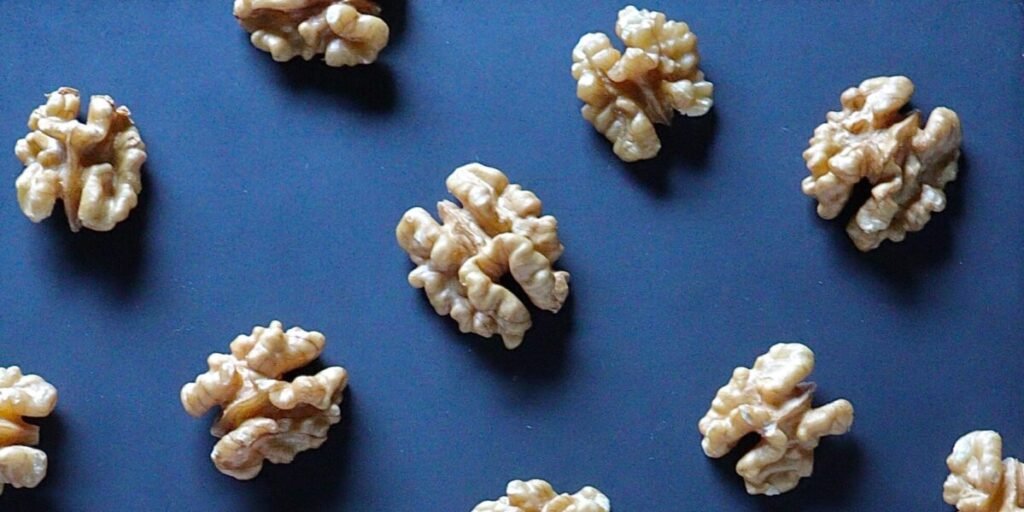What foods can you eat to help with depression, anxiety and stress?
Have you noticed that your eating habits have changed in the last 6 months? On top of living with COVID-19, facing employment struggles, kids being home schooled, or a variety of other hurdles, many have found their eating habits have shifted. With all of this, we are seeing unprecedented levels of stress and anxiety.
While this may seem like a good time to indulge in comfort foods to cope with the negative feelings we’re experiencing, the exact opposite should occur. According to Dr. Uma Naidoo, director of nutritional and lifestyle psychiatry at Massachusetts General Hospital, faculty member at Harvard Medical School and author of “This Is Your Brain on Food,” now is the time to integrate powerful foods and habits to improve well being and give yourself the best chance at achieving mental wellness through unpredictable times.

What you eat can have a significant effect on your mental health, according to Naidoo. The pandemic “can also be an opportunity to use tools and practices to bring yourself towards better mental well being,” she says.
In the next few weeks we are going to explore 5 different groups of foods, and ideas on how to prepare and cook them for your health. You don’t need to be a chef to make these. Just simple ingredients, a little time and a good appetite.
Omega-3 fatty acids: A different kind of acid…
Studies have shown that consuming omega-3 fatty acids, a type of polyunsaturated fat that’s responsible for building brain cells, can reduce symptoms of anxiety. Experts believe that omega-3′s have an anti-inflammatory effect on the brain. Another bonus of eating more omega-3′s? Better sleep. Anxiety and sleep issues such as insomnia are often linked.
What to eat: Oily fish, such as salmon and tuna, are a great source. For people who eat a plant-based diet, omega-3 fatty acids can be found in flaxseeds, chia seeds, pumpkin seeds as well as walnuts.
Why to eat it:
Here are the incredible benefits of salmon, walnuts, flax seeds, chia seeds and pumpkin seeds, that would compel you to make these a mainstay in your diet.
Salmon and tuna:
- Lowers blood Pressure. …
- Source of Healthy fats. …
- Weight loss-friendly. …
- Bank of vitamins and minerals. …
- Improves memory, good brain food. …
- Antiinflammatory. …
- Facilitates healthy skin. …
- Keeps you warm

13 Proven Health Benefits of Walnuts
- Rich in Antioxidants. Share on Pinterest. …
- Super Plant Source of Omega-3s. …
- May Decrease Inflammation. …
- Promotes a Healthy Gut. …
- May Reduce Risk of Some Cancers. …
- Supports Weight Control. …
- May Help Manage Type 2 Diabetes and Lower Your Risk. …
- May Help Lower Blood Pressure.
Top 10 Health Benefits of Flax Seeds
- Flax Seeds Are Loaded With Nutrients. …
- Flax Seeds Are High in Omega-3 Fats. …
- Flax Seeds Are a Rich Source of Lignans, Which May Reduce Cancer Risk. …
- Flax Seeds Are Rich in Dietary Fiber. …
- Flax Seeds May Improve Cholesterol. …
- Flax Seeds May Lower Blood Pressure. …
- They Contain High-Quality Protein.
- Flax Seeds May Lower Blood Pressure. …
- They Contain High-Quality Protein.

11 Proven Health Benefits of Chia Seeds
- Chia Seeds Deliver a Massive Amount of Nutrients With Very Few Calories. …
- Chia Seeds Are Loaded With Antioxidants. …
- Almost All the Carbs in Them Are Fiber. …
- Chia Seeds Are High in Quality Protein. …
- The High Fiber and Protein Content in Chia Seeds May Help You Lose Weight. …
- Chia Seeds Are High in Omega-3 Fatty Acids.
Pumpkin seeds:
- Weight loss
- Hair growth
- Better sleep
- Hormones
- Omega 3 rich
- Heart health
Be sure to keep checking in on our series of how to eat for your brain and help improve your mental fitness!

